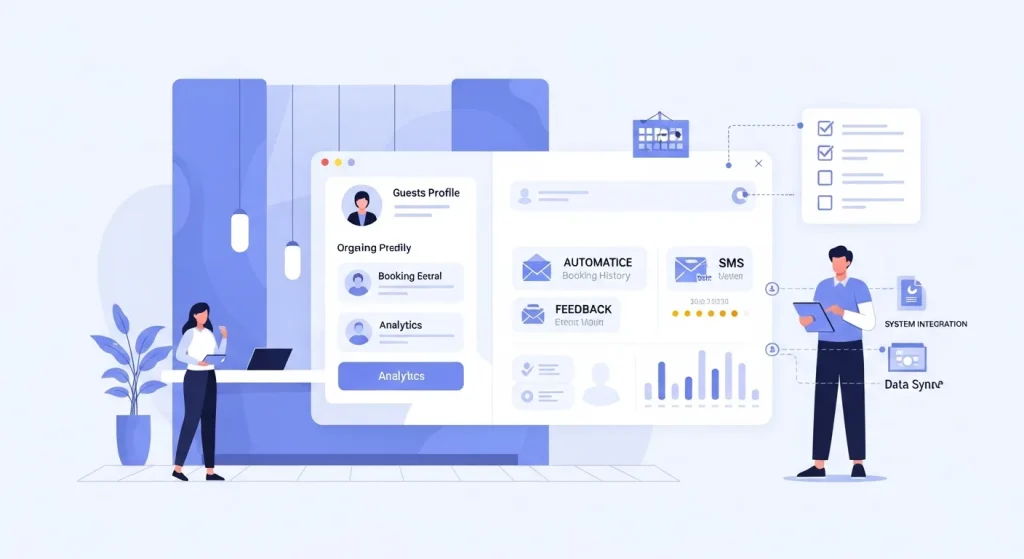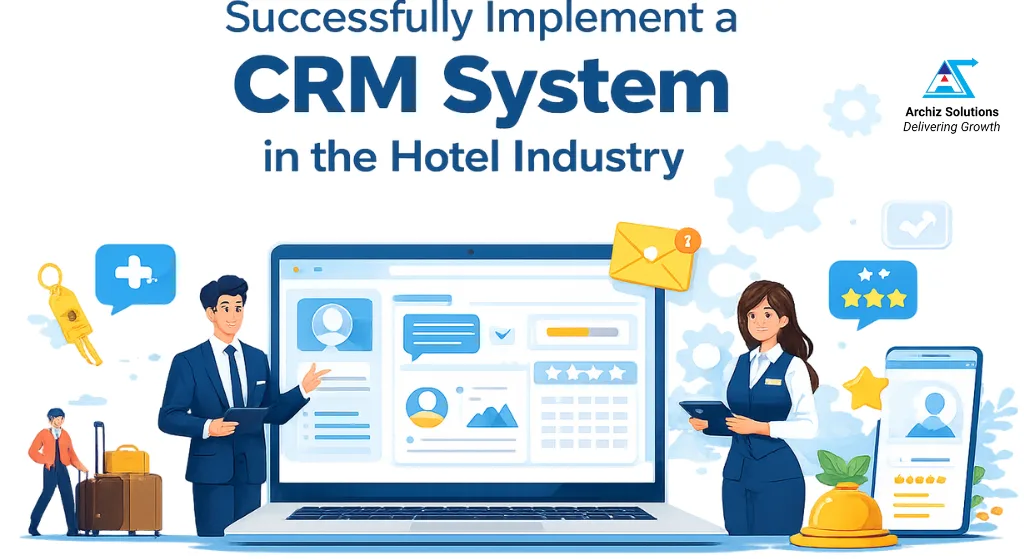How to Successfully Implement a CRM System in the Hotel Industry
The hospitality industry is becoming increasingly guest-centric and technology-driven. Modern hotels are no longer competing only on room quality or pricing—guest experience, personalization, and timely communication now define success. This is where hotel CRM solutions play a critical role.
Implementing the right CRM software helps hotels centralize guest data, automate communication, improve loyalty, and streamline daily operations. However, to get real value, hotels must implement CRM systems strategically and correctly.
This guide explains how to successfully implement hotel CRM solutions and maximize ROI for your hotel business.
What Are Hotel CRM Solutions?
Hotel CRM solutions are specialized customer relationship management systems designed for hotels and hospitality businesses. They help manage guest profiles, booking history, preferences, communication, loyalty programs, and feedback—all from a single platform.
Unlike generic CRM software, hotel CRM solutions are tailored to support front desk operations, reservations, marketing, and guest services.
Why Hotels Need Hotel CRM Solutions
Today’s guests expect personalized experiences at every touchpoint—from booking confirmation to post-stay follow-ups. Without structured systems, managing guest data manually leads to missed opportunities and inconsistent service.
By implementing hotel CRM solutions, hotels can:
Centralize guest information
Improve communication across departments
Increase repeat bookings and loyalty
Automate marketing and guest engagement
Enhance overall guest satisfaction

Step-by-Step Guide to Successfully Implement Hotel CRM Solutions
1. Define Your Hotel’s CRM Goals Clearly
Before selecting any hotel CRM solutions, identify what you want to achieve. Clear objectives help in selecting the right CRM software.
Common goals include:
Improving guest experience
Increasing repeat bookings
Automating guest communication
Managing guest feedback
Boosting direct bookings
2. Choose the Right Hotel CRM Software
Not all CRM software is built for hospitality. Select hotel CRM solutions that align with your hotel size, operations, and guest engagement strategy.
Look for CRM software that offers:
Guest profile management
Booking & stay history tracking
Automated emails & SMS
Integration with PMS & booking engines
Reporting & analytics
3.Integrate CRM Software with Existing Hotel Systems
For smooth implementation, your hotel CRM solutions must integrate with existing systems such as:
Property Management System (PMS)
Channel managers
Booking engines
Email & marketing platforms
Integration ensures data flows seamlessly and eliminates manual work.
4. Clean and Organize Guest Data
Accurate data is the backbone of effective hotel CRM solutions. Before migration:
Remove duplicate guest records
Standardize guest information
Verify contact details and preferences
Clean data improves CRM software performance and personalization accuracy.
5. Train Hotel Staff Effectively
Even the best hotel CRM solutions fail without proper staff adoption. Train front desk teams, sales staff, and marketing teams on how to use the CRM software efficiently.
Training should cover:
Guest data entry
Communication workflows
Task automation
Reporting dashboards
Benefits of Implementing Hotel CRM Solutions
Improved guest experience
Higher customer retention
Better operational efficiency
Increased revenue through personalization
Stronger guest relationships
Conclusion
Implementing hotel CRM solutions is no longer optional—it’s essential for modern hospitality businesses. With the right CRM software, clear goals, trained staff, and data-driven strategies, hotels can deliver exceptional guest experiences and drive sustainable growth.
A well-implemented CRM system transforms how hotels engage with guests before, during, and after their stay.
Frequently Asked Questions (Faqs)
Q1.What are hotel CRM solutions?
Hotel CRM solutions are CRM systems designed specifically for hotels to manage guest data, communication, bookings, and loyalty programs.
Q2.How do hotel CRM solutions improve guest experience?
They enable personalized communication, faster service, automated follow-ups, and consistent guest engagement.
Q3.Is CRM software necessary for small hotels?
Yes. Even small hotels benefit from CRM software by improving guest relationships, marketing efficiency, and repeat bookings
Q4.Can hotel CRM solutions integrate with PMS?
Most modern hotel CRM solutions integrate seamlessly with PMS, booking engines, and channel managers.


Very well written and informative!!
Hospitality is the business where lots of data is generated and effective data management becomes the utmost essential. Its great to see you showcasing how revenue, marketing, and sales can be integrated under one system which will simplify the day to day tasks. Enabling the business to access all the data at their fingertips. Thanks for sharing!